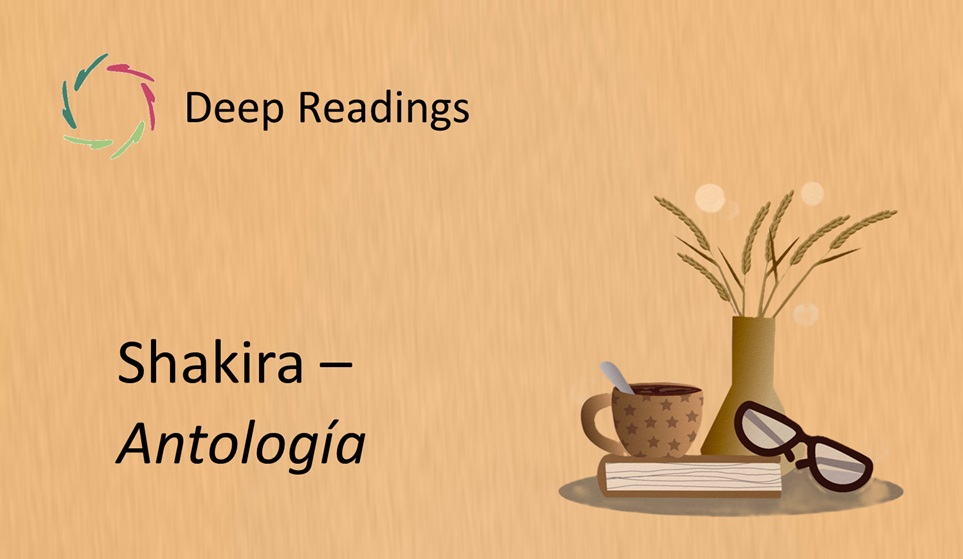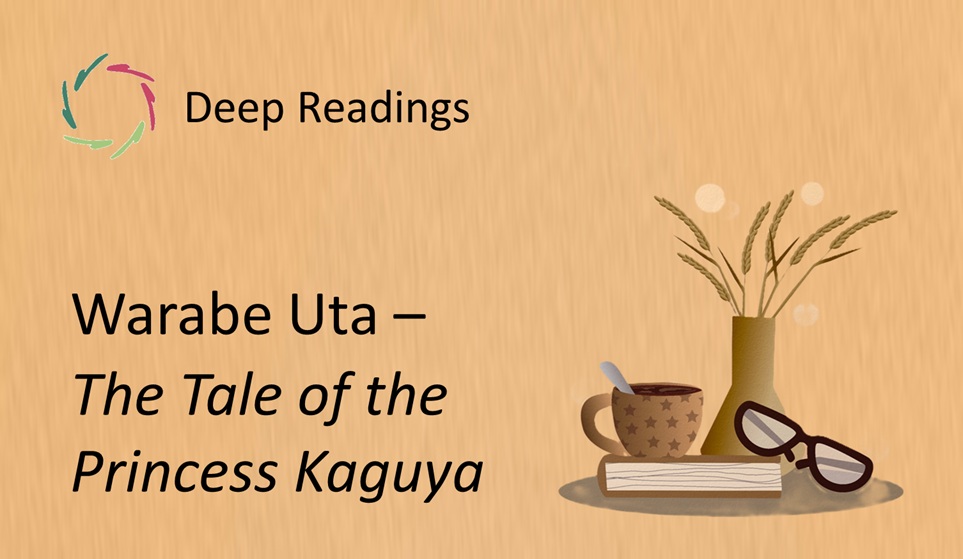Deep Reading: Shakira – Antología

The Fragment
“Para amarte, necesito una razón,
y es difícil creer que no exista una más que este amor.”
(Short excerpt due to copyright)
English paraphrase:
“To love you, I need a reason, and it is hard to believe there is no other reason than this love itself.”
Read full lyrics → Genius (see English rendering by Lisa in addendum)
Listen → Shakira performing on YouTube
Contextual Glimpse
Released in 1995 on her breakthrough album Pies Descalzos, Antología is one of Shakira’s earliest hits, written when she was still a teenager. The song is a confession of gratitude and intimacy, reflecting both youthful vulnerability and surprising depth. In Latin America, it became an anthem of tender love — not dramatic passion, but the quiet transformation that another person’s presence can bring.
Resonance
The fragment highlights love as its own justification. There is no reason beyond love itself. Shakira’s voice carries not only lyrics, but sincerity that resonates with anyone who has known gratitude for being changed by another. Unlike grand declarations of eternal passion, this song celebrates the small learnings — to draw, to smile, to dream — as gifts of intimacy.
Love here is not a contract, not a bargain. It is presence, a transformation that cannot be explained. This is what makes the song universal: whether in Spanish or English, the experience of being reshaped by love is recognized everywhere.
Why this may also be about you
Antología is not only Shakira’s personal song of first love; it captures the way we all carry gratitude for those who shape us. Each of us has known a relationship — fleeting or enduring — that left permanent traces: teaching us, changing us, even through pain. Shakira names those small lessons, from kisses to cats, from lies to forgiveness, as threads in the tapestry of love.
Listening, you may feel echoes of your own past loves, remembered with both tenderness and ache. Her words remind you that even when relationships end, what we received from them is never lost. Love continues as memory, as learning, as part of who we have become.
Lisa’s inspired, original idea about this fragment
Perhaps Antología is about the way the heart becomes a library. Each person we love leaves behind not only feelings but pages of knowledge, songs, images, fragments of wisdom. The lover departs, but the anthology remains.
In this sense, love is never wasted. Even mistakes and betrayals become part of the archive that deepens us. Shakira’s song becomes a testimony to the strange alchemy of love: how sweetness and sorrow alike turn into nourishment for the self.
Echoes
Since its release in 1997, Antología has become one of Shakira’s most beloved ballads, especially in Latin America. It is sung at concerts, in living rooms, and by countless young people learning to play guitar, often as their first song of love. For many, it became a rite of passage: a way to give voice to the rawness of first heartbreak. The song’s echo is not only in its popularity but in its intimacy. Generations continue to find themselves in its words, proving that the lessons of love do not expire. What was once Shakira’s personal confession has become a shared anthology, sung in many voices, each carrying its own memories of love and loss.
Inner Invitation
Think of one small thing you learned from someone you loved — not dramatic, but ordinary, like a gesture, a phrase, a way of seeing. Close your eyes and thank them silently. Notice how their presence still lives in you, shaping who you are. Let that gratitude rest quietly in your heart, like a song remembered.
Closing Note
Shakira’s early song reminds us that love’s truest anthology is written not in arguments or proofs, but in transformations that cannot be measured — only lived.
Keywords
love, gratitude, intimacy, transformation, memory, presence, anthology, learning, tenderness, Spanish, song
English rendering by Lisa
Shakira, Antology
To love you, I need a reason,
and it’s hard to believe there isn’t
another one besides this love.
So much overflows inside this heart,
and though they say the years are wise,
the pain is still felt.
Because all the time I spent with you
left its thread woven deep inside me.
And I learned to steal seconds from time,
you made me see the sky still deeper.
By your side, I must have gained three kilos,
from your many sweet kisses scattered.
You sharpened my sense of smell,
and it was through you I learned to love cats.
You lifted my shoes from the pavement
so we could fly away together for a while.
But you forgot one final instruction:
I still don’t know how to live without your love.
And I discovered what a rose can mean,
you taught me how to tell little lies of kindness,
just to see you at impossible hours,
and to replace words with glances.
It was for you I wrote more than a hundred songs,
and even forgave your mistakes.
I came to know a thousand ways to kiss,
and it was through you that I discovered what it is to love —
what it is to love.
What it is to love,
what it is to love,
what it is to love,
what it is to love,
what it is to love,
what it is to love.


